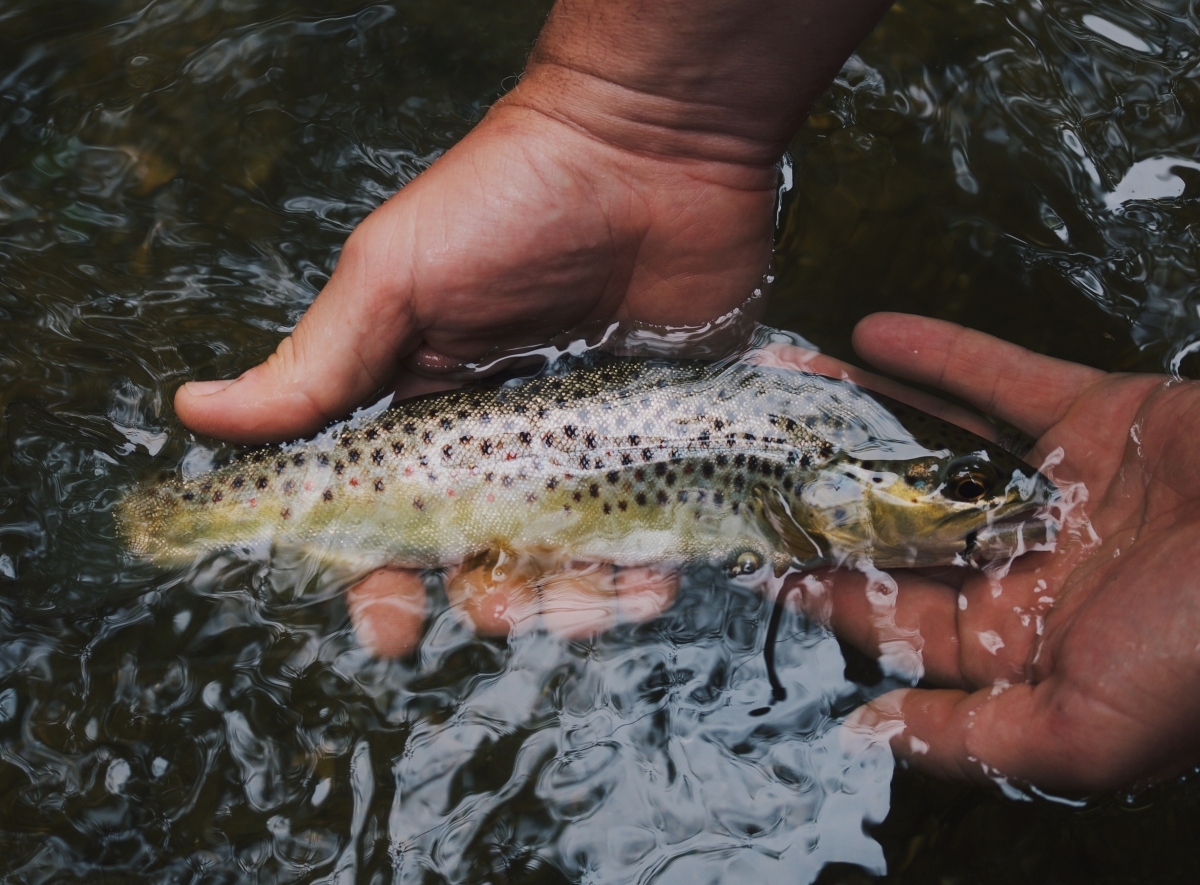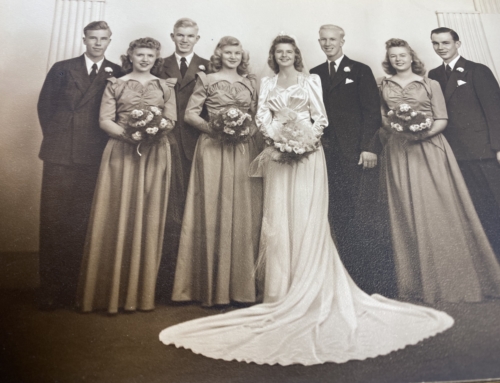The family of the deceased man, Tom, had decided to have a memorial service in the North Woods of Wisconsin at a campsite where the family often went during the summer.
I drove six hours to reach the remote campsite. The setting was beautiful, with pristine waters surrounded by stunning and majestic trees. I was asked to guide the family through a memorial service of tribute to Tom, who passed away of cancer some months before.
His death occurred in January when the bitter cold had settled in. But now, the brilliant sunshine was out and it was time to gather for the ‘remembrance’ of Tom and time to be reminded of Jesus’ promise and His experience of resurrection. It was time to look ahead to resurrection and restoration of the body and time to remember who Tom was.
Tom loved to fish and hunt. He taught his children to do the same. Now friends of similar interest had gathered to be with his now-widowed wife. We were there to speak good words (eulogy) and to recall fond memories.
I was puzzled about what kind of biblical text would fit the occasion. The story of Jesus takes place thousands of miles from the North Woods of Wisconsin and, of course, occurred about two thousand years prior.
As I walked to the campsite, I recalled the scene by the Sea of Tiberias, where Jesus sends his disciples out to fish, even though they had caught no fish the previous night. Jesus asked the disciples to toss their nets to the other side of the boat. Of course we know the story, the net was full of fish—153 of them. The Carpenter (Jesus) tells the fisherman how to fish and their nets were filled. Follow the complete story told in in John 21:1-13:
After this, Jesus showed himself again to the disciples by the sea of Tiberias. This was how he showed himself.
Simon Peter, Thomas (known as Didymus), Nathanael from Cana in Galilee, the sons of Zebedee, and two other disciples were all together.
Simon Peter spoke up.
‘I’m going fishing,’ he said.
‘We’ll go with you,’ they replied.
So they went off and got into the boat; but that night they caught nothing.
As dawn was breaking, Jesus stood beside the seashore, but the disciples didn’t know that it was Jesus.
‘Children,’ said Jesus to them, ‘haven’t you caught anything worth eating?’
‘No!’ they replied.
‘Cast the net on the right side of the boat,’ he said, ‘and you’ll find something.’
So they cast the net; and now they couldn’t draw it in because of the weight of the fish.
So the disciple that Jesus loved spoke to Peter.
‘It’s the master!’ he said.
When Simon Peter heard that it was the master, he wrapped his cloak around him (he had been naked for work), and threw himself into the sea. The other disciples brought the boat in to land, dragging the net full of fish. They weren’t far from shore, about a hundred yards away.
When they came to land, they saw a charcoal fire laid there, with fish and bread on it.
Jesus spoke to them.
‘Bring some of the fish you’ve just caught,’ he said.
So Simon Peter went and pulled the net onto the shore. It was full of large fish, a hundred and fifty-three in all. The net wasn’t torn, even though there were so many.
‘Come and have breakfast,’ said Jesus to them.
None of the disciples dared ask him, ‘Who are you?’ They knew it was the master.
Jesus came and took the bread and gave it to them, and so also with the fish. This was now the third time that Jesus had appeared to the disciples after he had been raised from the dead.
John 21:1-13 (Kingdom New Testament)
I read this text to the small gathering at the campsite to start the memorial service. The people gathered knew how to fish and knew how frustrating it was to catch nothing after a night’s worth of fishing. They also knew that every time you did catch fish, you knew exactly how many you caught. Most people who fish for recreation can give lengthy fish-stories of how each fish was caught.
But, of course, the purpose of reading this text was to point beyond fish. I needed to point beyond the death of the loved one, Tom, even though we had a good time of recalling Tom’s life. My words needed to draw attention to the point of the story: Jesus was really raised from the dead and He is our hope.
A fishing trip nearly 2000 years ago is relevant to the family of the deceased because through Jesus’ appearance they recognize that ‘It is the Master’, as Peter blurts out. As the John’s Gospel indicates, None of the disciples dared ask him, ‘Who are you?’ They knew it was the Master. And the text further explains: This was now the third time that Jesus had appeared to the disciples after he had been raised from the dead.
Indeed, the point of my story was to help people see beyond fish, beyond the beauty of the scenery, and to call attention to what matters: Jesus is raised from the dead and this give us assurance of a future of bodily resurrection for ourselves.
Our memories are important. Resurrection future is more important. The beauty and wonder of creation is significant but it pales in comparison with the New Creation which God himself brings into being.
I closed our memorial service with a benediction in the Name of the Father, Son, and Holy Spirit. Then it was time to eat. It reminded me of the next portion in the Gospel of John where Jesus eats with the disciples and asks Peter, ‘Do you love me?’
We move from certainty of resurrection to affirmations of love toward Jesus. Worship follows embrace of Christ’s resurrection. The New Creation has dawned; our ‘way’ to live requires us to love Jesus and to bring comfort and hope to others.
The day ended with a long drive home thinking about the striking scenery and the bereaved but joyful family. They remembered Tom well and were pointed to think about the Author of life.
Want to dig deeper into John’s Gospel? You can enroll in N.T. Wright’s course Themes in the Gospel of John HERE.
David P. Seemuth, PhD
Latest posts by David P. Seemuth, PhD (see all)
- Advent Reflections from the N.T. Wright Online Team - December 5, 2022
- YouTube as Public Reading of Scripture - August 29, 2022
- What I Learned From A Week With Professor Wright - June 16, 2022





![[Video] There’s more to ‘joy and peace’ than you might think](https://www.ntwrightonline.org/wp-content/uploads/2021/03/tamara-menzi-HQ_Vh1fSWHk-unsplash-500x383.jpg)
